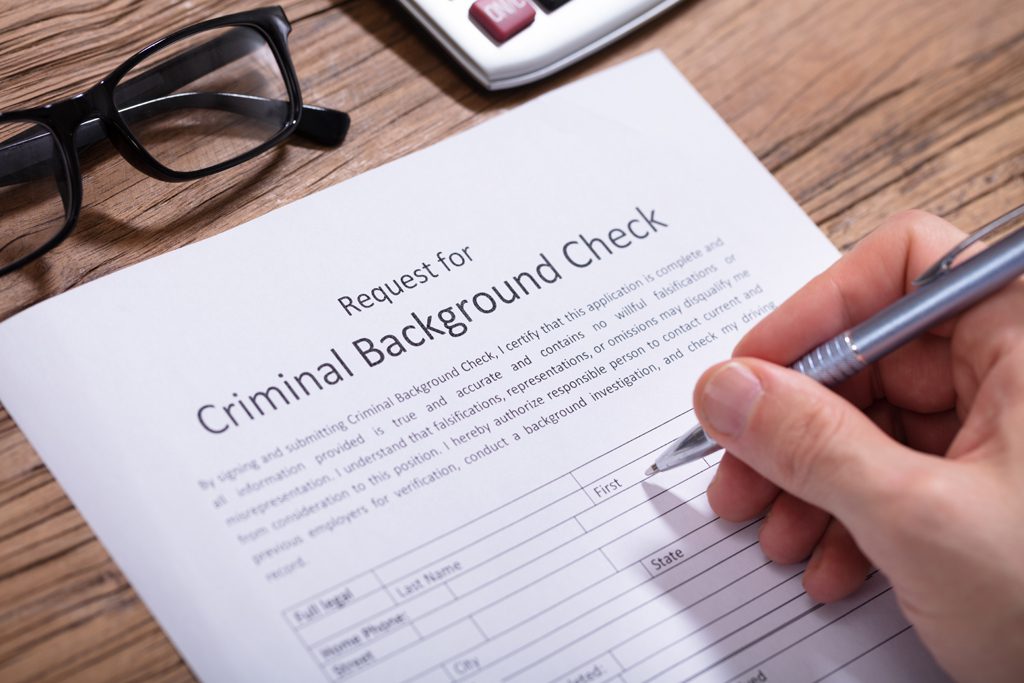BACKGROUND CHECKS & INVESTIGATIONS
Understanding the Difference Between Background Checks and Background Investigations
While the terms “background check” and “background investigation” are often used interchangeably, they have distinct differences. Both processes can reveal similar information, but they serve different purposes and levels of detail. Choosing the right one depends on your specific needs.


Background Checks
A background check is typically used to verify a person’s integrity, often for employment purposes. They are commonly required for positions that involve responsibility for others’ well-being, such as nursing or teaching roles. When you request a background check from a private investigator, they access a database available exclusively to law enforcement and licensed professionals.
Information we may be able to obtain from a background check:
- Date of birth
- Address and address history
- Criminal records and judgments
- Licenses
- Property ownership
- Financial and bankruptcy history
- Employment history
- And more
However, the reliability of background checks can vary, as database information may sometimes be inconsistent. Experienced private investigators will cross-check multiple databases to ensure the accuracy of the data obtained.
Background Investigations
A background investigation delves deeper into an individual’s history, providing a more comprehensive picture of who they are. In addition to the data from a background check, public records and interviews may be used to gather detailed insights into a person’s life and character. This process can uncover inconsistencies, misrepresentations, or omissions that a standard background check might miss.


Should You Opt for a Background Check or a Background Investigation?
A background check offers a surface-level glimpse into a person’s character through objective data. However, if you need a thorough validation of someone’s background, a background investigation is the better option.
Services Offered by Liberty Street Investigations
Our team at Liberty Street Investigations can help you decide which type of background screening is best suited to your needs. We provide professional, thorough, and discreet services tailored to uncover the information you require.

What Information Appears on a Background Check in New Jersey?
The scope of a background check in New Jersey depends on the specific reports requested. Most employers look for information related to criminal history, employment history, education, and professional licenses. Some employers may also request driving records or require pre-employment drug screening.
Common Information that may be Included in Pre-Employment Background Checks
- Misdemeanor and felony convictions (not expunged or pardoned)
- Pending criminal cases
- Arrests leading to convictions
- Sex offender registry status
- Employment history
- Education history
- Address history
- Domestic Terrorist Watch List information
Criminal History
If the individual has a criminal record that hasn’t been expunged, the following details may appear:
- Date of offens
- Type of offense
- Severity (misdemeanor or felony)
- Case outcome
- Outcome date
- Sentence
Expunged records may not be reported on a background check.
Education Verification
If an education verification report is requested, it can include:
- Schools attended
- Dates of attendance
- Degrees, diplomas, or certificates earned
Employment Verification
Employment verification reports provide information about the applicant’s past employers, duration of employment, and job titles.
Background Checks and the Law
New Jersey Background Check Laws for 2024
Employers in New Jersey conducting pre-employment background checks must adhere to federal and state laws to avoid penalties and litigation.
Federal Laws on Employment Background Checks
Fair Credit Reporting Act (FCRA): This law protects consumer privacy, ensuring the accuracy and fairness of background information. Employers must obtain written consent before conducting a background check. If the decision not to hire is based on the report, employers must follow the FCRA’s adverse action process.
Title VII of the Civil Rights Act of 1964: Enforced by the Equal Employment Opportunity Commission (EEOC), this law requires employers to assess criminal records individually concerning the job for which the applicant is applying.
New Jersey State Laws on Employment Background Checks
New Jersey Opportunity to Compete Law: This law restricts employers from inquiring about criminal history during the initial application process and prohibits excluding applicants with criminal records from consideration in job advertisements.
New Jersey Clean Slate Law: Enacted in 2019, this law allows individuals with convictions older than 10 years to petition for expungement, making their criminal records non-reportable.
Obtaining a Background Check in New Jersey
Employers can request criminal history information from the New Jersey State Police with the person in question’s permission. However, state-provided reports may not include out-of-state records or other crucial background information. For comprehensive and legally compliant background checks, partnering with a reputable provider like Liberty Street Investigations is the best approach.
How Employers Can Stay Compliant
Avoid Early Criminal History Inquiries: Do not ask about criminal history early in the hiring process.
Individually Assess Convictions: Evaluate how a conviction relates to the job before making an adverse hiring decision.
Provide Notice Before Adverse Decisions: If rejecting an applicant based on background check information, provide notice and allow them to respond.
Contact Us
Reach out to us today or call 908-625-1762 and let our experienced team assist you with all your investigative needs.
